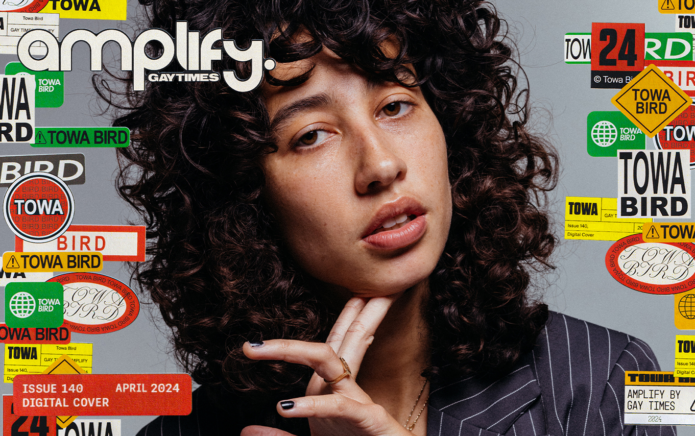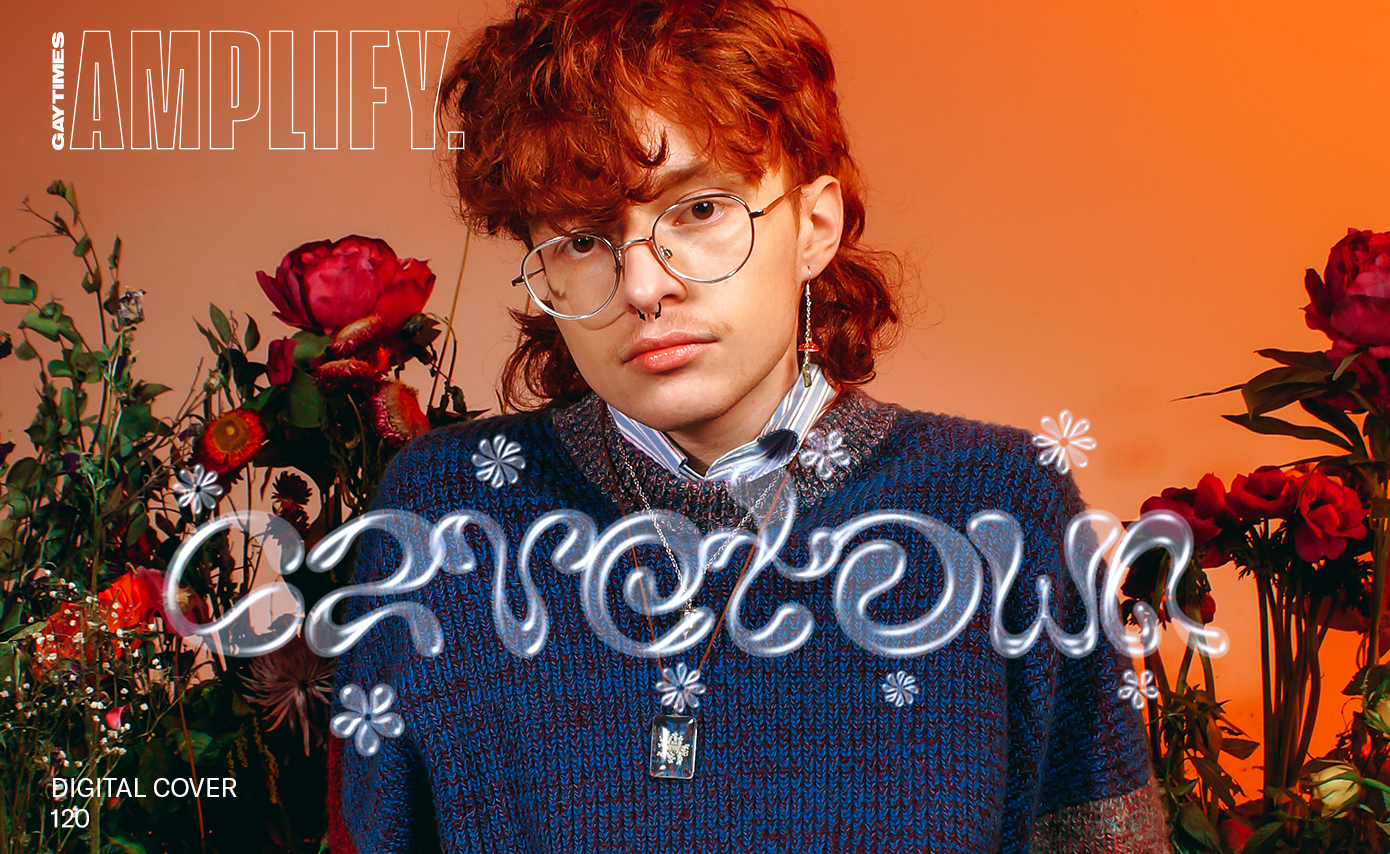
“She’s a little princess. She’s never been aggressive. She doesn’t love being held… I think she pretends she doesn’t love it, but she secretly does,” Cavetown beams of – yep, you guessed it – his cat Juno, aka one of the most famous felines on the internet and the subject of track 12 on his fifth studio album worm food. Currently on a headline tour across Europe and the UK in support of the aforementioned record, Robin is speaking with GAY TIMES from Vienna about their “shy and lady-like” best friend who admittedly “likes her own space” and is “pretty independent” so for now, she’ll survive. “I love talking about her, I could talk about her forever, honestly,” he says. “I miss her.”
Our conversation takes place a few days after Robin announced the launch of his incredible new foundation, This Is Home Project, which aims to empower and support LGBTQ+ youth via donations to various queer-led organisations such as Black LGBTQIA+ Migrant Project (BLMP), True Colors United, Trans Lifeline, Black Trans Femmes in the Arts and Stonewall. Over the next three years, a minimum of $1 million will be donated. “It felt like a natural progression,” explains Robin. “I’m excited to work closer with charities that I really love and that I’ve worked with before and, on a more personal basis, be able to fund one person’s top surgery or someone who is in a bad home situation or someone who needs help accessing any kind of medical resources. It’ll be cool to do that on a wider scale.”
The news coincided with the release of worm food, the successor to their fourth studio album Sleepyhead and their second EP, Man’s Best Friend. While the former received praise from fans and critics and became their first album to chart in the UK, Robin says the era is tainted, of sorts, because it reminds him of a “stressful” period in his life. As their first album under a major label, Sleepyhead marked their first album to not be written, produced and recorded from the comforts of their own bedroom; hence the “bedroom artist” label that is often associated with the ‘Cavetown’ moniker. “I’ve always been used to writing and producing in the same environment with plenty of time and no deadlines,” he says. “It was an abrupt change that I didn’t enjoy, really. I look at it like a learning experience for both me and my team; figuring out what my limits are with how much I can do at once and what my boundaries are with saying yes. I’m definitely proud of a lot of those songs, but I do feel like the album didn’t come together in the way that I would’ve wanted and it feels unfinished in many areas. So, it can sometimes be hard to play those songs or even listen to them.”
Robin’s manager and label witnessed how recording Sleepyhead on the road affected his creative process and allowed him to return to his old methods for worm food; resulting in a “naturally finished” product and a more “relaxed” experience for him. “Listening to these songs is gonna remind me that I had a good time writing them,” the Cambridge-born artist says. “It’s an important process for me and they tried really hard to help me maintain that, and I’ve been given a lot of space and time, especially over the pandemic, to work at my own pace. If I hadn’t had that rough experience with Sleepyhead, I wouldn’t know that we were doing things wrong. Overall, it’s good that it happened.”
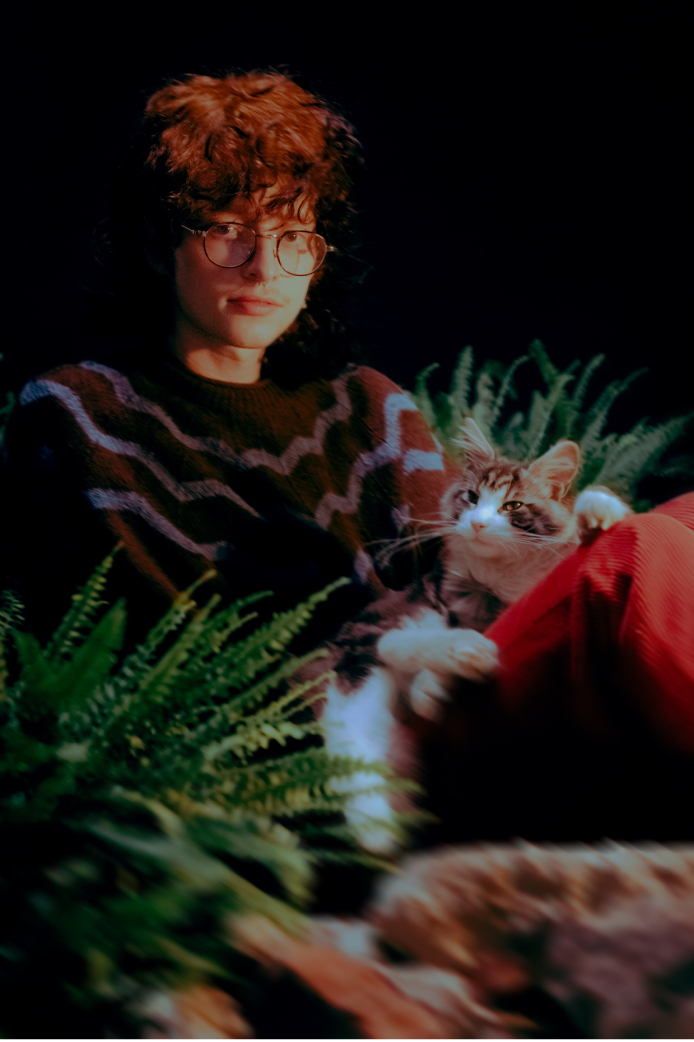
Fronted by the critically-acclaimed beabadobee collaboration Fall In Love With a Girl, worm food is one of Robin’s most personal offerings yet; featuring an homage to Juno, extremely famous cat, with incredibly wholesome lyrics such as, “I do it for Juno / Pretend her life is on the line / Manipulate myself into staying alive / For Juno.” (Crying.) Meanwhile, Wasabi sees Robin collaborate for the first time with his mother, a professional flutist who frequently performs in orchestras and teaches in London and Oxford. “For a while she’s been like, ‘If you need a flute on one of your tracks, you know who to call!’” he says, before reminiscing on their (adorable) creative process: “She got up the morning of the recording and started practising and was like, ‘Robbie, I don’t know if I can do it! It’s too fast and there’s nowhere for me to breathe,’ and so we went through it and I don’t think she understood where we were in the song at any point. She was pretty confused the whole time.” (Crying, again.)
Laughing, Robin reveals how she reacted to the final version: “She was tearing up like, ‘Is that me?’ and I was like, ‘Yeah! That’s you. You played all of that.’ She loved it, so I’m really glad she was happy with the final product. I’m in love with it.” After opening for indie-pop band The Bleachers earlier this year, where lead vocalist Jack Antonoff brought his dad on stage for their track How Dare You Want More, he “posed the idea” to his mother to play Wasabi on stage one day. “I love that idea,” he gushes. “I’d love to do more with her. She plays recorder, as well, and different kinds of flutes. She’s really talented.” Don’t expect Robin to duet with his musicologist and choir director father anytime soon, however. “He’s always been like, ‘If you ever need a church choir on a track…’ and I’m like, ‘I don’t think I would have anyone else to ask, but, erm…’ I’d love to work with him too, but I don’t know how to make that work for a song!”
While Robin treasures each song on worm food, particularly Wasabi, he has a special connection to Better. Although he predicts that it won’t be as much of a hit on streaming as some of the other tracks, he loves its “simplicity” and subject matter. “I wrote it about something that I’ve been finding hard to talk about with people closest to me,” he reveals. “I feel like it’s really strange how I find it easy to write about things I can’t talk to my closest friends and family about, but I’m happy putting it onto the internet for strangers to listen to? That’s something I’m still trying to figure out, why that feels different.” Lyrics for Better include, “I look so much better so I guess I’m alright / And I’ve got everything together and I’m glad I’m alive,” and “Feels like I’ve turned my body inside out / My head is burning like a machine, tryna’ cool it down / I’ve figured I’d have gotten used to this by now / I’ve gotten nearly everything I ever hoped I’d have.” While Robin didn’t go into detail about the song’s inspiration, he says he “still” wants people to understand his emotions because “it feels good for people to know that you’re going through something, even if you necessarily don’t want to elaborate on it or share much else.” The response to Better has been overwhelmingly positive, also, with one fan describing it as the “hardest hitting” song Robin has ever recorded, while another said: “I fucking love this so much Robbie. It hurts but it’s so relatable.” Reactions like this are worth it for Robin, saying it also helps him feel “less alone”.
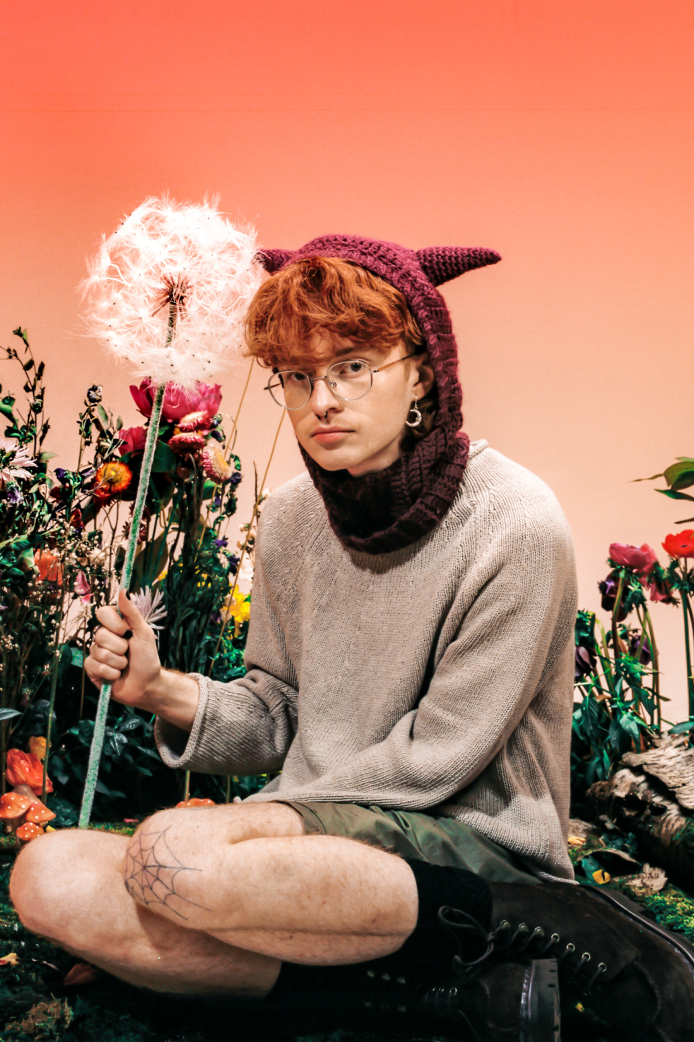
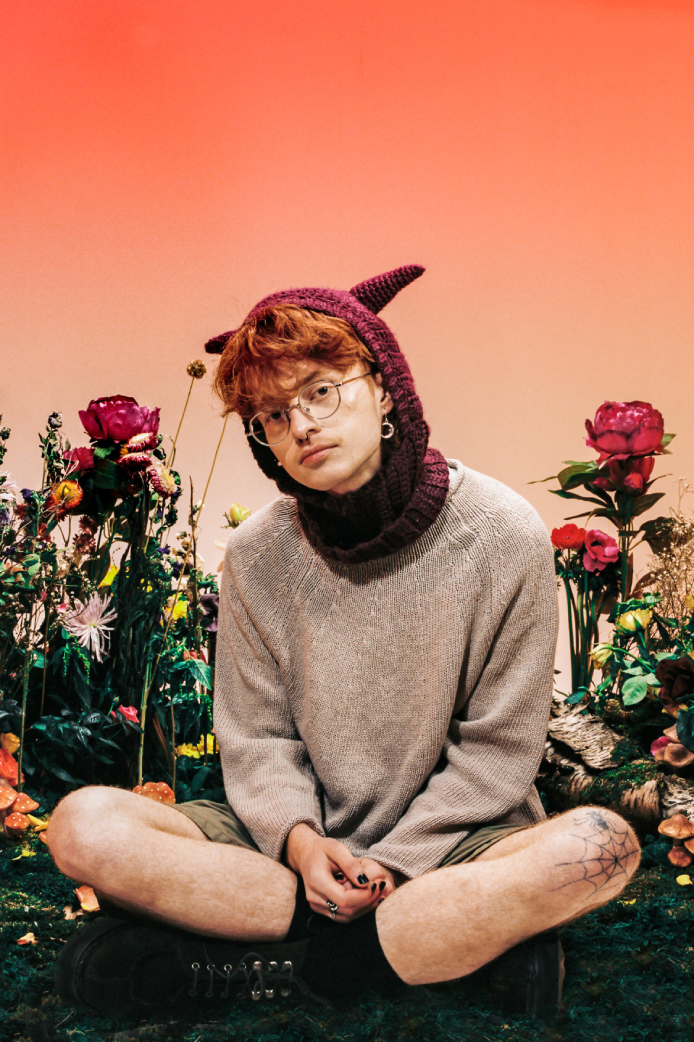
“I’m able to step outside of myself when I’m writing music,” he explains of his creative process. “Usually I don’t know why words feel right or what they necessarily mean when I write them, but I like to think they’re just words and connections in my brain that were already there but I just didn’t realise until I made them into a physical thing I have control over.” Robin’s lyrics often border on the abstract, leaving them open to interpretation and therefore more relatable for his fans. Grey Space, a collaboration with his close friend and musician Chloe Moriondo, sees Robin sing: “I miss the grey space / I was perfect and cold and afraid / Always played by the rules of the game / If you lose, then the greyscale will put you to shame.” Robin says he wants fans to “take what they need” from his lyrics, saying “any interpretation is welcome”. “I’m also looking forward to hearing people’s interpretations that match the way I intended,” he explains. “With every album, I’ll talk about stuff that I feel alone in and I hope people listen and feel like I’m verbalising a feeling that they haven’t heard someone else experience before. I think that’s always what I hope people get out of it. Even if not, I just hope people think there’s some catchy tunes and fun songs to dance around to.”
Robin has cultivated a passionate following, both online and in person, since rising to fame with his self-titled debut album. Fans will often meet each other through group chats, attend tours together and print out signs such as ‘Hugs for Robbie’ during fan-favourite tracks like Hug All Ur Friends. “At one of my earlier shows, people decided to print out pictures of bugs and hold them up,” he laughs. “It’s silly little things like that that are really cute.” A lot of their supporters also credit Robbie’s music with “saving” their “lives” and helping them come to terms with their sexuality and/or gender identity. In the comments section for the Fall In Love With a Girl music video, which tells the story of someone struggling with their sexuality, a trans man from Russia shared: “I find myself in your lyrics very often, which is really inspiring. […] Perhaps it is thanks to you that I still exist on this earth. Despite the terrible situation in my country, it is your music that makes me calm down and take a deep breath.” Another fan said the track makes them “feel a little bit better” about living in an ‘unsupportive household’.
“It makes me really happy for them,” Robin says, “because I remember being in their place as a fan of musicians and YouTube creators; having those feelings of being heard and accepted by these people. I remember how important that was for me to have at that age. It’s very surreal to have switched places and be the one that does that for these kids. It’s very special.” Admittedly, Robin often feels “confused and overwhelmed” with how global his fanbase is (he boasts over a million followers on Instagram) – saying his brain “still thinks I’m a lonely kid at school” – although he cherishes how his supporters have created an inclusive and welcoming environment for one another. “I was initially responsible for creating this audience, but I really give credit to them for who they are and who they’ve brought in and the vibe that they’ve created in and the acceptance they omit,” he says. “It’s not me in the crowd hugging my friends and swaying around. It’s not me passing water to random people and looking after each other and making sure people have space if they need it. It’s these people who come to my shows and they’re all just so sweet and caring and they care about each other. At some point it was because of me, but it’s also them and I want to give them that credit. I feel super lucky that these lovely people have chosen to keep being lovely under the ‘Cavetown’ umbrella. It’s really cool.”
Having uploaded his first song on YouTube in 2013, called Haunted Lullaby, Robin has been in the industry now for almost a decade. Describing the internet and growing up online as a “weird and constantly changing ecosystem,” Robin says he thought he knew “everything when I was 14 in fandoms on Twitter”. “I probably still don’t. My brain still hasn’t finished developing,” he says, before revealing what he’s learned over the past nine years: “To be patient with myself, as well as other people who might not realise that they don’t know everything. The internet is an amazing place, especially for people like me growing up. Through secondary school, I didn’t really have any friends so I found my people through Twitter. It can be dangerous, in ways, but it’s also full of good people. You want your kid to fall over enough times to know that they have to put their hands out in front of them, you know? I’m grateful that I went through things online, meeting the wrong kinds of people or tweeting the wrong things and having to reevaluate myself. It’s a learning experience. I wouldn’t be where I am today without the internet.”
Cavetown’s fifth studio album, worm food, is out now.
